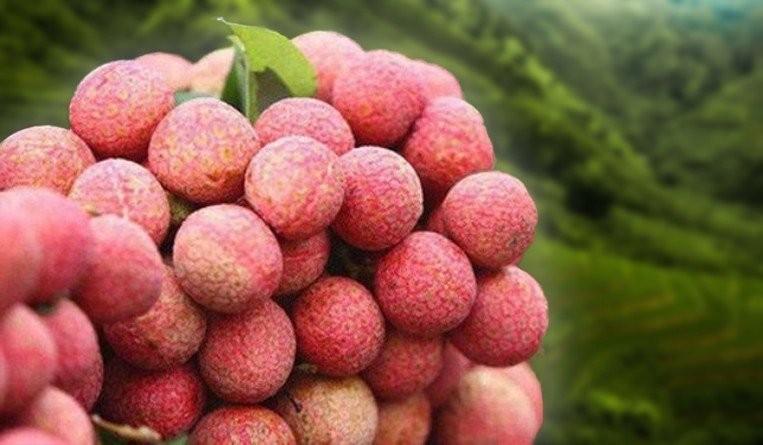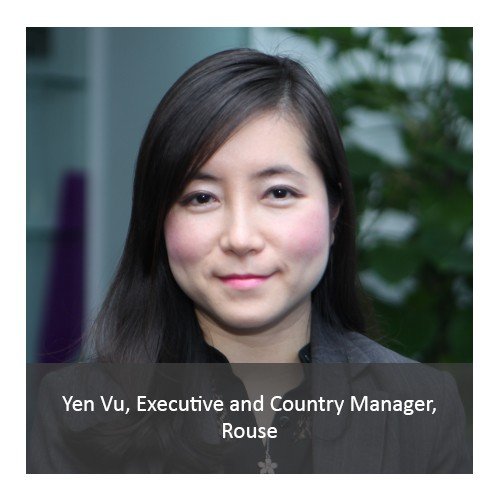Vietnam’s Luc Ngan lychee gets GI certification in Japan
15 April 2021

Luc Ngan lychee, grown in the Luc Ngan district of Bac Giang province in Vietnam, was given a geographical indications (GI) certification in Japan on March 12, 2021, opening doors of opportunities for the country’s numerous lychee producers.
This development took place under the Memorandum of Understanding on GIs between Vietnam and Japan by the National Office of Intellectual Property - Ministry of Science and Technology of Vietnam and the Food Industry Affairs Bureau - Ministry of Agriculture, Forestry and Fisheries of Japan.
“Vietnam has a great potential for growing and exporting fruits and vegetables, thanks to its favorable geographic and climatic conditions,” said Yen Vu, executive and country manager of Rouse in Ho Chi Minh City.
According to Vu, Luc Ngan lychees in particular have full export potential. They are distinctive, produced under standardized and skillful manufacturing process and are wellmanaged by the local associations.
The GI certification in Japan adds even more value to the product. In Japan, demand for tropical fruits is growing and one-third of fruits consumed is imported. Domestic cultivation of fruits is also plummeting due to the aging local farmers.
“As a matter of fact, Japan is considered one of the most important import partners of Vietnam with regard to fruit and vegetable,” she said. “By way of illustration, the first batches of 200 tons of lychees exported to Japan were consumed quickly and fully appreciated despite their high price.”

Enumerating the benefits of GI protection, Vu said it is a confirmation of a product’s premium quality and origin.
Not only is Vietnam one of the world’s major producers of lychee. It is also the second largest exporter of the plump, sweet, white-fleshed fruit. In 2020, around 80,000 tons of lychee from Bac Giang, or 47.5 percent of the total number of lychees grown in the province, were exported to over 30 countries. These included China, United States, Australia and Canada. Almost 60 percent of Bac Giang’s output were from Luc Ngan, home to the largest lychee-growing region in the province with over 15,000 hectares planted to lychee. Bac Giang, itself, is Vietnam’s leading hub of lychee farming activities.
GI certification also confers exclusive rights on the local producers of lychee, allowing them to take actions against any unauthorized use.
Plus, it prevents another party from registering Luc Ngan as a trademark. If this occurs, reclaiming the trademark will be expensive and time consuming.
“Vietnamese businesses have learned hard lessons on this aspect, with many trademarks and GIs for Vietnamese agricultural products misappropriated by foreign individuals/entities,” said Vu.
Citing the case involving the mark Duc Thanh for dehydrated jackfruit, Vu said: “Vinamit, the owner of the trademark spent four years pursuing a lawsuit against a bad-faith registration in China and eventually won the case. However, the way forward for Vinamit was uneven as they had to make considerable effort to rebuild their brand.”
Another benefit of GI protection is that it paves the way for Luc Ngan lychee to penetrate other markets.
“In other words, since many other countries consider the Japanese GI certificate a passport for the product to enter their markets, GI protection in Japan would further facilitate the introduction of Luc Ngan lychee into other markets. Therefore, the Luc Ngan Lychee GI protection will offer significant competitive advantages and motivate marketers to expand their business at an international level,” she explained.
“Another crucial factor that Vietnamese traders should take into consideration is that many Vietnamese agricultural products are subject to considerable tax reduction when entering the Japanese market according to the Vietnam – Japan Economic Partnership Agreement,” she added. “From an economic viewpoint, it increases sales, advances producers’ economic prosperity and contributes to regional-socio economic growth.”
Luc Ngan lychee had already been granted trademark protection in Australia, China, Singapore, South Korea, Laos and Cambodia.
Espie Angelica A. de Leon






